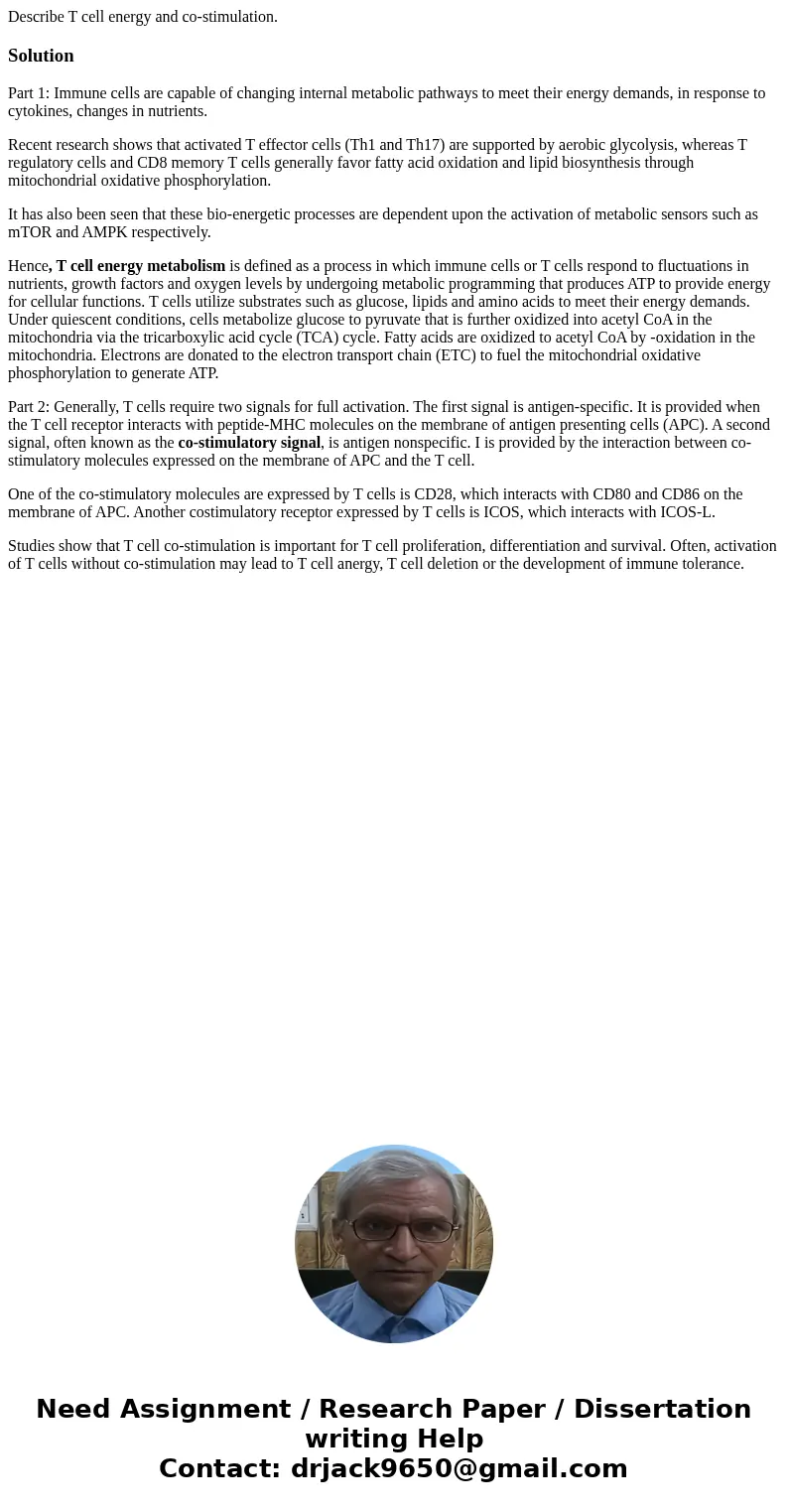Describe T cell energy and costimulationSolutionPart 1 Immun
Describe T cell energy and co-stimulation.
Solution
Part 1: Immune cells are capable of changing internal metabolic pathways to meet their energy demands, in response to cytokines, changes in nutrients.
Recent research shows that activated T effector cells (Th1 and Th17) are supported by aerobic glycolysis, whereas T regulatory cells and CD8 memory T cells generally favor fatty acid oxidation and lipid biosynthesis through mitochondrial oxidative phosphorylation.
It has also been seen that these bio-energetic processes are dependent upon the activation of metabolic sensors such as mTOR and AMPK respectively.
Hence, T cell energy metabolism is defined as a process in which immune cells or T cells respond to fluctuations in nutrients, growth factors and oxygen levels by undergoing metabolic programming that produces ATP to provide energy for cellular functions. T cells utilize substrates such as glucose, lipids and amino acids to meet their energy demands. Under quiescent conditions, cells metabolize glucose to pyruvate that is further oxidized into acetyl CoA in the mitochondria via the tricarboxylic acid cycle (TCA) cycle. Fatty acids are oxidized to acetyl CoA by -oxidation in the mitochondria. Electrons are donated to the electron transport chain (ETC) to fuel the mitochondrial oxidative phosphorylation to generate ATP.
Part 2: Generally, T cells require two signals for full activation. The first signal is antigen-specific. It is provided when the T cell receptor interacts with peptide-MHC molecules on the membrane of antigen presenting cells (APC). A second signal, often known as the co-stimulatory signal, is antigen nonspecific. I is provided by the interaction between co-stimulatory molecules expressed on the membrane of APC and the T cell.
One of the co-stimulatory molecules are expressed by T cells is CD28, which interacts with CD80 and CD86 on the membrane of APC. Another costimulatory receptor expressed by T cells is ICOS, which interacts with ICOS-L.
Studies show that T cell co-stimulation is important for T cell proliferation, differentiation and survival. Often, activation of T cells without co-stimulation may lead to T cell anergy, T cell deletion or the development of immune tolerance.

 Homework Sourse
Homework Sourse